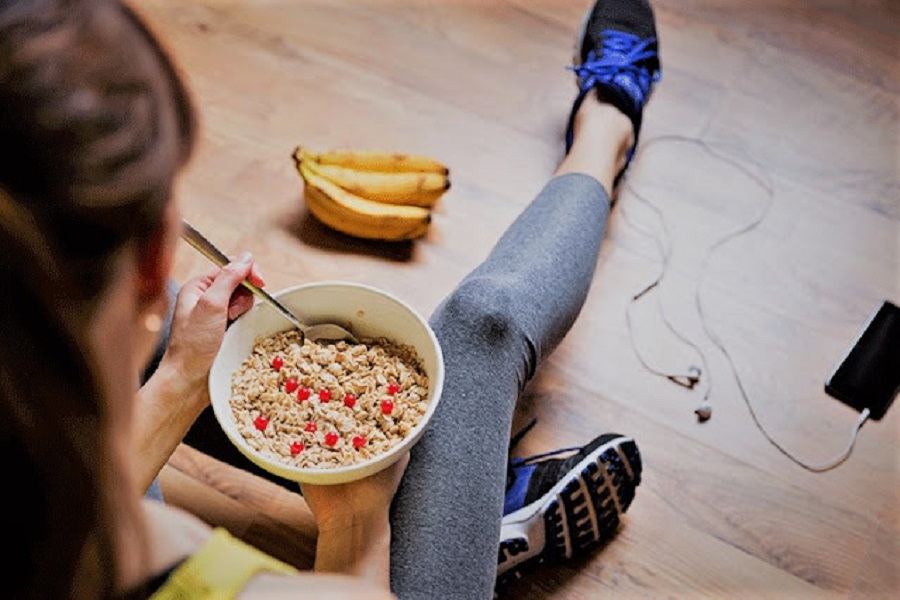In the pursuit of fitness goals, whether it’s building muscle, improving endurance, or shedding unwanted pounds, proper nutrition plays a pivotal role. Among the many factors influencing workout performance, pre-workout nutrition stands out as a critical component. What you eat before your workout can significantly impact your energy levels, endurance, and overall performance.
In this comprehensive guide, we’ll explore the principles of pre-workout nutrition, debunk common myths, and provide practical tips to help you fuel your workouts effectively.
Understanding Pre-Workout Nutrition
Pre-workout nutrition refers to the meals and snacks consumed in the hours leading up to exercise. The primary goals of pre-workout nutrition are to provide the body with the energy it needs to perform optimally, enhance endurance, and support muscle recovery. To achieve these objectives, it’s essential to consider the timing, composition, and quality of your pre-workout meals and snacks.
Timing:
The timing of your pre-workout meal or snack can significantly impact your performance and comfort during exercise. Ideally, you should consume your pre-workout meal or snack approximately 1-3 hours before your workout. This allows enough time for digestion and absorption while preventing discomfort or bloating during exercise.
Composition:
A balanced pre-workout meal or snack should include a combination of carbohydrates, protein, and healthy fats. Carbohydrates serve as the primary source of energy for high-intensity exercise, while protein supports muscle repair and recovery. Healthy fats provide sustained energy and help regulate hormone levels. Aim for a balance of macronutrients to fuel your workouts effectively.
Quality:
Choose nutrient-dense, whole foods whenever possible to provide your body with the vitamins, minerals, and antioxidants it needs for optimal performance. Avoid highly processed or sugary foods, which can lead to energy crashes and impair workout performance. Instead, opt for whole grains, lean proteins, fruits, vegetables, and healthy fats to fuel your workouts and support overall health.
What to Eat Before Your Workout
Now that we’ve covered the basics of pre-workout nutrition let’s explore some specific options to fuel your workouts effectively:
1. Pre-Workout Meals (Consumed 2-3 hours before exercise):
Grilled chicken breast with quinoa and steamed vegetables: This balanced meal provides a combination of carbohydrates, protein, and fiber to sustain energy levels and support muscle repair and recovery.
Salmon or tofu stir-fry with brown rice and mixed vegetables: Rich in protein, healthy fats, and complex carbohydrates, this meal provides sustained energy and essential nutrients for optimal workout performance.
Turkey and avocado whole grain wrap: This portable and convenient option combines lean protein, healthy fats, and whole grains for a balanced pre-workout meal that’s easy to digest.
2. Pre-Workout Snacks (Consumed 30-60 minutes before exercise):
Greek yogurt with berries and a drizzle of honey: This snack provides a combination of protein, carbohydrates, and antioxidants to fuel your workout and support recovery.
Whole grain toast with almond butter and sliced banana: This simple yet satisfying snack offers a balance of carbohydrates, healthy fats, and protein to sustain energy levels and prevent hunger during exercise.
Apple slices with a handful of almonds: This quick and portable snack provides a mix of carbohydrates, protein, and healthy fats to fuel your workout and keep you feeling satisfied.
Practical Tips for Pre-Workout Nutrition
In addition to choosing the right foods, consider the following practical tips to optimize your pre-workout nutrition:
1. Hydration:
In addition to solid food, be sure to hydrate adequately before your workout. Drink water throughout the day and consume fluids with your pre-workout meal or snack to prevent dehydration and support optimal performance.
2. Experiment and Listen to Your Body:
Pay attention to how different foods and meal timings affect your energy levels, digestion, and workout performance. Experiment with various pre-workout meals and snacks to find what works best for you and your body’s unique needs.
3. Plan Ahead:
To ensure you have time to digest your pre-workout meal or snack, plan ahead and schedule your workouts accordingly. Aim to eat your main meal 2-3 hours before exercise and consume a smaller snack 30-60 minutes before your workout.
4. Be Mindful of Portion Sizes:
While it’s important to fuel your workouts adequately, be mindful of portion sizes to avoid feeling overly full or bloated during exercise. Opt for smaller, nutrient-dense meals and snacks that provide the energy you need without weighing you down.
5. Consider Individual Preferences and Dietary Restrictions:
Tailor your pre-workout nutrition to align with your individual preferences, dietary restrictions, and fitness goals. Whether you follow a specific dietary pattern or have food allergies or intolerances, choose foods that support your overall health and well-being.
Conclusion
In the quest for fitness and performance, pre-workout nutrition plays a crucial role in fueling success. By prioritizing balanced meals and snacks that provide the energy, nutrients, and hydration your body needs, you can optimize your workout performance, enhance endurance, and support muscle recovery.
Whether you opt for a hearty meal or a quick snack before your workout, remember to listen to your body, experiment with different options, and find what works best for you. With the right fuel and preparation, you can maximize your potential and achieve your fitness goals with confidence and vitality.
Related Topics:
What to Eat After a Workout to Gain Muscle
What to Eat Before a Morning Workout
Belly Fat Diet Plan


